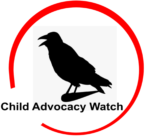 The Oregon Department of Human Services (ODHS) will be hosting a discussion panel at Willamette University about the importance of the Indian Child Welfare Act on Nov 2, 2022. The public is invited to attend.
The Oregon Department of Human Services (ODHS) will be hosting a discussion panel at Willamette University about the importance of the Indian Child Welfare Act on Nov 2, 2022. The public is invited to attend.
The panel, titled “Complex Conversations: Tribal Rights Are Human Rights – Protecting Oregon’s Indian Child Welfare Act,” will take place at Willamette University’s Kaneko Commons on Nov 2. at 1 p.m.
ODHS is inviting community members and students from schools across the state to come and join the discussion.
Sponsored by the ODHS Office of Equity and Multicultural Services, the panel will discuss the importance of the federal Indian Child Welfare Act, the Oregon Indian Child Welfare Act, and the critical need to protect both.
The constitutionality of the federal act will be challenged before the U.S. Supreme Court on Nov 9 during oral arguments for the Haaland v. Brackeen case.
The discussion panel will be moderated by Dion Jordan, Director of the Office of Equity of Multicultural Services. The panel will include Adam Becenti (Diné), ODHS Tribal Affairs Director; Aprille Flint-Gerner, Deputy Director of the ODHS Child Welfare Division; and Tribal representatives knowledgeable on the federal Indian Child Welfare Act, Oregon Indian Child Welfare Act, the history of the Nine Tribes of Oregon and Tribal sovereignty.
“The Indian Child Welfare Act has a long history of protecting cultural connections for Tribal children,” said ODHS Tribal Affairs Director Adam Becenti. “This conversation peels back the complex layers of Tribal sovereignty, government-to-government relationship, Indigenous rights, and how we will continue to amplify the voice of Tribes.”
Complex Conversations is a series of ODHS discussions on topics related to equity. These discussions are usually internal ODHS workforce development discussions to broaden overall employee awareness of sensitive or complex issues, no matter where they are personally in their equity journey.
This panel is the first time the public is invited to join a Complex Conversation discussion.
“The complexity of the Indian Child Welfare Act conversation we’re having on Nov. 2 made us ask ourselves, how can we best serve Tribal communities within Oregon,” said Dion Jordan, Director of the Office of Equity and Multicultural Services. “How can we open Complex Conversations to engage future leaders of Oregon? We serve through knowledge—laying a foundation for why complex conversations are necessary and making people aware of what’s at stake.”
“In Oregon our Child Welfare Division Vision for Transformation <https://tinyurl.com/ykdzs7ss> commits us to dismantling the structures, underlying mindsets, and biases that have contributed to and continue to contribute to the oppression of and racialized and disparate outcomes for Tribal children and families,” said Flint-Gerner. “The federal Indian Child Welfare Act and the Oregon Indian Child Welfare Act are critical laws that protect Tribal children, families and communities, and we must all work together to protect them.”
Congress passed the federal Indian Child Welfare Act in 1978 to provide statutory protection to Tribal families, keep Tribal children connected to their cultural roots and preserve the future of Tribal nations. Before the federal act passed in 1978, generations of Tribal children across the country were removed from their families and communities, often placed permanently without connection to their Tribal culture and families.
In 2020, the Oregon Legislature passed the Oregon Indian Child Welfare Act, which created a state-based Indian Child Welfare Act that aligned with the federal law while also honoring the unique needs and experiences of Tribal nations in Oregon. The Oregon Indian Child Welfare Act was strengthened during the 2021 Legislative Session.
For more information on how you can participate in ODHS Complex Conversations or register for the event, visit the OEMS Complex Conversations webpage. <https://tinyurl.com/2p334rr9>The event will be live streamed through ZOOM and on Facebook Live.

